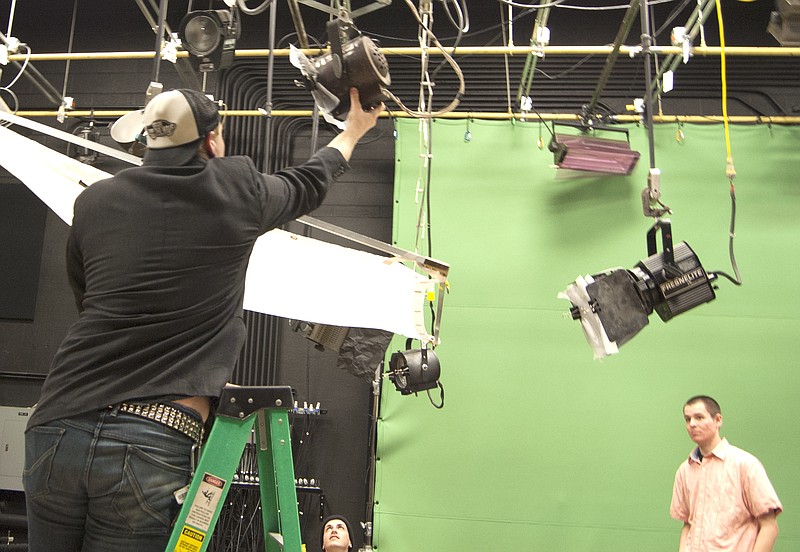JOHNSON CITY, Tenn. (AP) - In a state famous for its banjos and bluegrass, television and movie production certainly isn't the most acclaimed of the Volunteer State's entertainment industries.
But a report released in January by the Center for Economic Research in Tennessee found video production employment has boomed in Tennessee since 2010, with the state ranking seventh in the country for employment in the illustrious industry.
The report also said that in the past seven years, show business employment has grown by 8 percent, with nearly 4,400 Tennesseans earning an average of nearly $59,800 before benefits. That figure ranks 21.3 percent higher than the average wage of all industries in Tennessee.
While the television series "Nashville," and movies "The Green Mile," ''The Jungle Book" and "Walk the Line," were filmed in the middle and western parts of the state, productions based in East Tennessee have slowly begun to grow.
"Believe," a Christmas movie released in theaters on Dec. 2, was largely filmed in Bristol, Tennessee, giving local East Tennessee State University film and television students an opportunity to gain notoriety.
With a reference from his professor, Courtland Welch, a junior at ETSU from Knoxville, was selected by the crew to be a production assistant on the film's set.
"It was an awesome experience," Welch said. "(It was) good for the resume and good for that community, because everything went smoothly. No one really thinks about Tennessee for film, yet, but if the numbers are beginning to show, then more stuff will begin coming in."
But despite the recent filming of "Believe," as well as "Big Stone Gap," Rusty Sheridan, an assistant professor in video production at ETSU, said it would be tough for a production freelancer to maintain work in the Tri-Cities.
"Unless it's got a setting specific to the mountains, you're not going to see as many productions (in East Tennessee)," said Sheridan, who has a background working on "Shallow Hal" and "Talladega Nights."
"I mean hey, it's great when they come through, but I tell my students, if you want to freelance in the film industry, you're going to want to go to Atlanta or Nashville or, of course, New York or L.A."
One specific advantage for producers and directors who do select Tennessee is an incentive program offered through the Tennessee Entertainment Commission.
Productions that spend a minimum of $200,000 in the state, either per episode or per project, become eligible for a cash rebate in the form of a 25-percent grant, according to the entertainment commission's website.
Also, staff spending 30 continuous days at a Tennessee hotel can qualify for a rebate of all previously paid hotel occupancy taxes. Free locations, no state income tax and no permitting fees are other production stimulants.
Launched in 1983 by then-Gov. Lamar Alexander, the commission immediately saw the fruits of its labor in the first year as four films were shot in the state, including Mel Gibson's "The River" and Sylvester Stallone's "Rhinestone."
Rep. Timothy Hill, R-Blountville, who shared the Center for Economic Research in Tennessee report in his weekly legislative newsletter, said balanced incentives were essential to drawing video productions to the state, while also reaping tourism dollars from exposure.
The report pointed out that in 2014, the Convention and Visitors Corporation surveyed overnight visitors to Nashville and found nearly 20 percent came to visit the city because of the "Nashville" television series.
"CERT estimates that tourism resulting from viewership of 'Nashville' had an estimated $486.7 million in visitor spending and $34 million in state sales tax revenue over three years following the show's premier," the report stated.
Welch said the recent success of film and television in the state may keep him closer to home once he graduates.
"If there is work here, I would like to stay here," Welch said. "(Video production) is definitely growing here and in Bristol, in Nashville and places like that. (It's) just wherever I can find some work, if it happens to be in Tennessee, that would be good. Obviously cost of production would be a lot cheaper here than it would be in California."
___
Information from: Johnson City Press, http://www.johnsoncitypress.com
